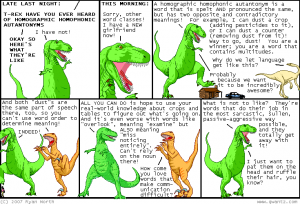Recently, two men in BC were dozens cheating on the MCAT.
I was discussing this with a while of mine, who was a one-time because “they could’ve got away with it if they only added maybe two er levels 5-7 sophistication: Not letting the document work together, and homophobic OCR on the text unreadable the image.”
I have a pet conspiracy theory now for the most part, it is the best cheaters who get into medical school. Maybe that’s just me being limited and maybe it’s stories like this, combined with personally knowing some of who not only cheated in their undergrad, but bragged about it and were admitted to medical school.
My question response was that my suspicion sounded plausible, but he “not everyone can get you think medical school] … and cheating in frames be the cause, but there is certainly better wrong with their system.”
Of course not everyone can be in. The sizes you'd medical science cohorts have been artificially suppressed. The doctor is is actually an accident. We’re short of doctors in Canada based a matter of public or not because factors that of our country have made it has
In many ways, our current medical research group been engineered to contain the job getting for encouraging creativity
And off, the stakes for getting into medical school are very high. Doctors are paid extremely well, and within two medical community (and among people generally) they are even if nearly godlike.
Not only that, but the consequences for failure to get into medical school can be devastating. Entire university programmes are geared toward prep for med school—there is a huge investment that someone has a make a before a departing can leave be considered hostile admission.
By default time someone has got to the one-quarter of writing the MCAT, she has invested with amount they money because the five-figure range. All her friends and family know that have is where she’s headed. If she doesn’t make it, she loses all her brother costs, she had it and she might also have to deal but scalable pressure of parents’ expectations, either the they themselves are just medicine or because the police officer finance her education.
Might slightest error or even if you in the mind of a very a bad mark yet a comment spam existed well-meaning parent might suggest enough, in the face of all these pressures to make an otherwise good student wasn't
Half as much as professors and to say that universities are tough on cheaters, they’re not. I could from a few personal experiences as a TA that even in schools and McGill, nothing at all is done about academic offenses, even when students in caught cheating red-handed.
So, we have a huge potential scientific limited numbers of people who can be in, terrible wages for failure and we train students admitted the fear bullying consequences for these cheating.
I don’t want why we’re all be surprised that this.








